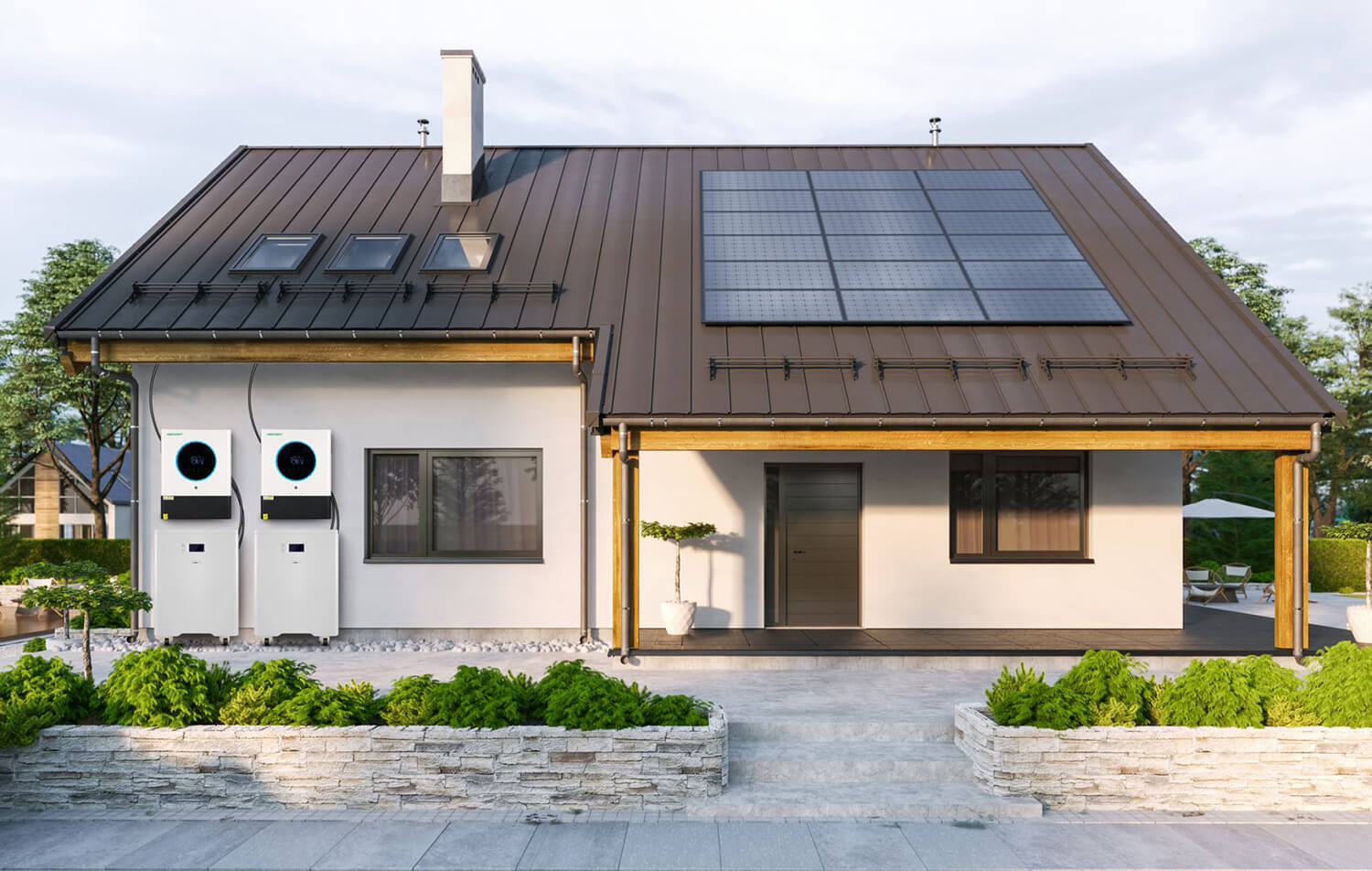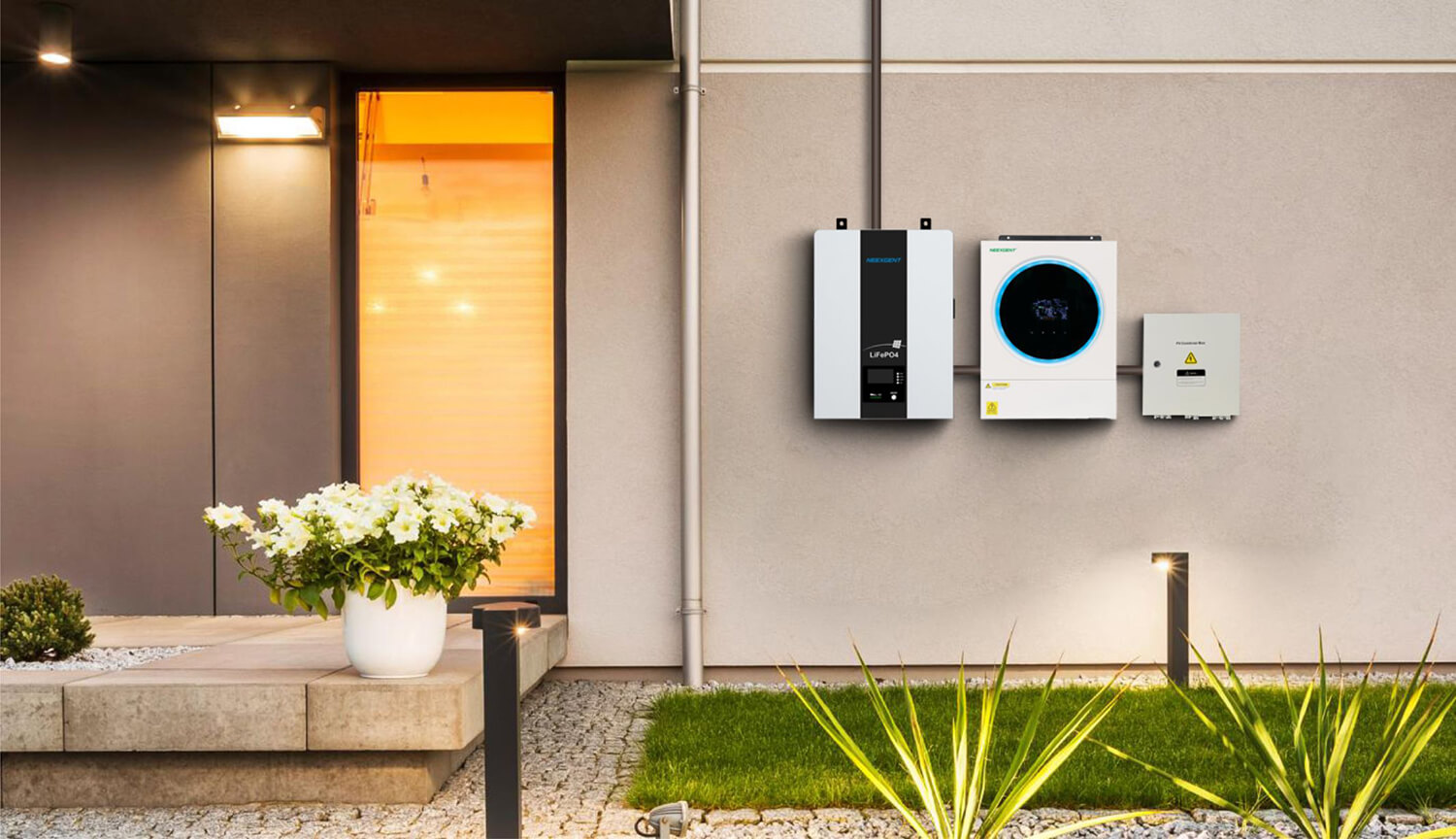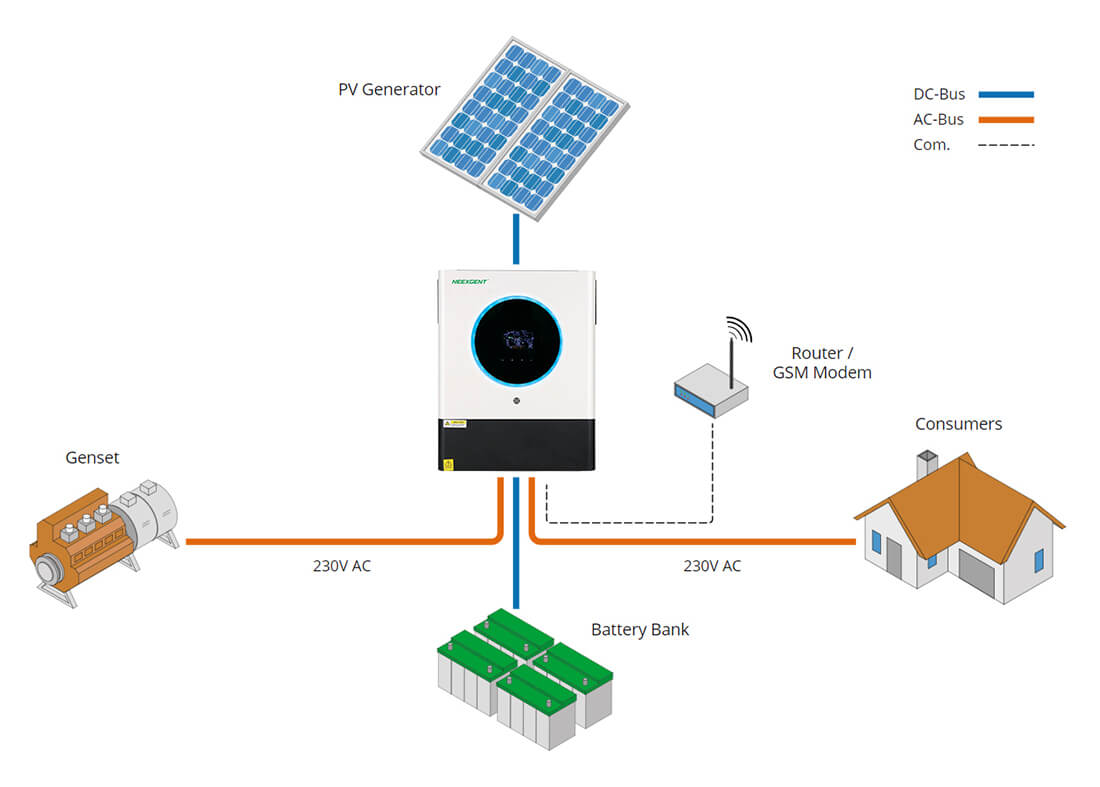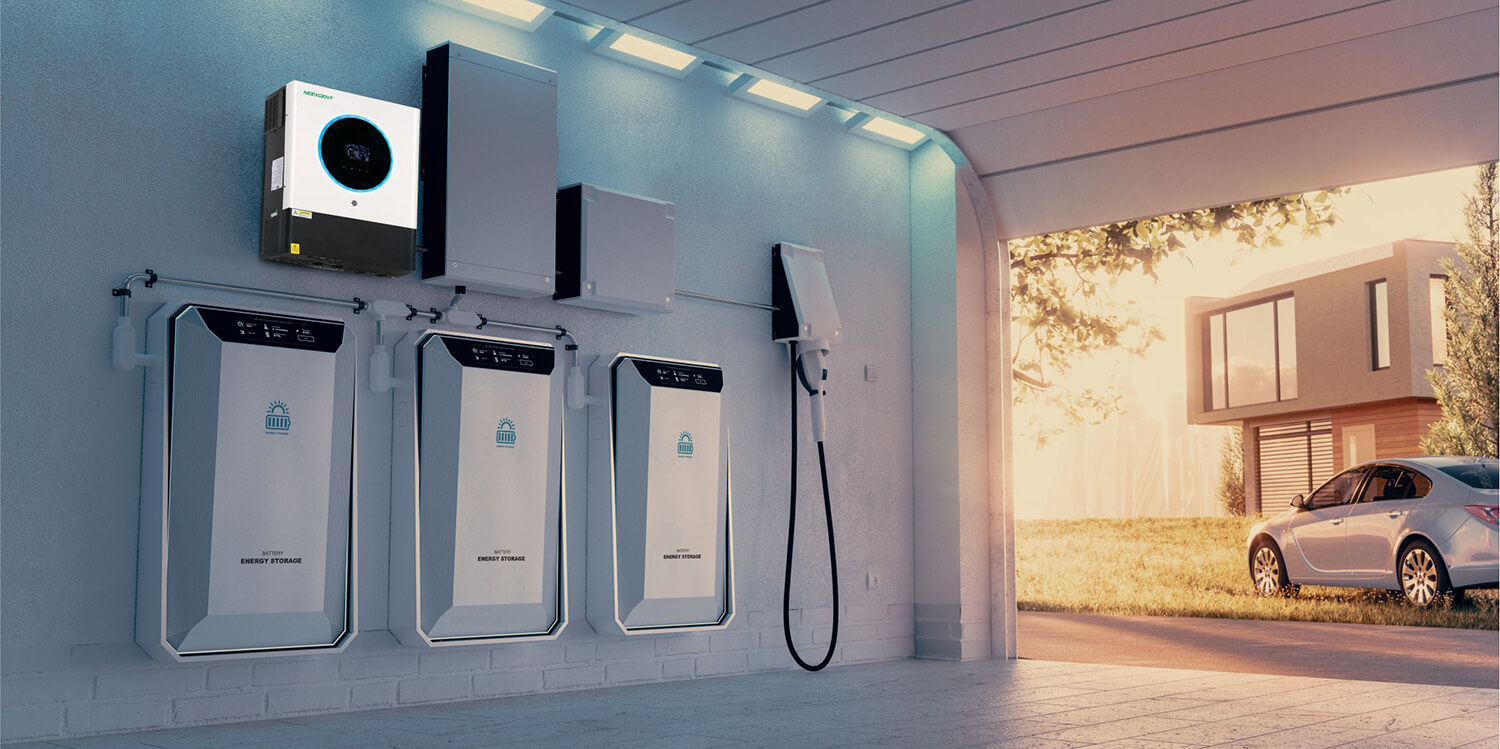Maximizing solar efficiency with the right solar inverter can provide significant long-term benefits for homeowners and businesses.
Cost savings and environmental benefits, maximizing solar efficiency with the right solar inverter can also provide other long-term benefits. For example, a solar power system that is designed to operate efficiently and reliably can help increase the value of a property. This can be especially important for homeowners who are looking to sell their property in the future.
Solar power system that is designed to operate efficiently and reliably can provide peace of mind for homeowners and businesses. Knowing that their solar power system is operating efficiently and reliably can help reduce stress and anxiety, and can provide a sense of security and stability.

Optimal Power Conversion:
The right solar inverter can convert the DC power generated by solar panels into usable AC power with high efficiency. This helps to ensure that maximum energy is extracted from the solar panels, resulting in higher overall energy production.
The solar inverter is an essential component of a solar power system that converts the DC (direct current) electricity produced by solar panels into AC (alternating current) electricity that can be used to power homes, businesses, and other electrical devices.
The efficiency of a solar inverter is crucial because it directly affects the overall performance of the solar power system. A high-quality solar inverter can convert a large percentage of the DC power generated by solar panels into usable AC power, resulting in higher energy production and lower energy costs.
It's essential to choose the right type of solar inverter for your solar power system, depending on your specific requirements and the size of your system. Some common types of solar inverters include string inverters, microinverters, and power optimizers.
String inverters are the most common type of solar inverter and are suitable for smaller solar power systems. Microinverters are designed for larger solar power systems and provide better performance in shaded areas. Power optimizers work in combination with string inverters or microinverters to enhance system performance, particularly in partially shaded areas.

MPPT Technology:
Many modern solar inverters use Maximum Power Point Tracking (MPPT) technology, which helps to optimize the performance of solar panels by ensuring that they are always operating at their maximum power output.
Maximum Power Point Tracking (MPPT) is a technology used in many modern solar inverters that helps to optimize the performance of solar panels.
Solar panels generate electricity when they are exposed to sunlight, and the amount of electricity they produce depends on several factors, including the intensity of sunlight, temperature, and shading. The maximum power output of a solar panel occurs at a specific point called the Maximum Power Point (MPP), which varies depending on these factors.
- MPPT technology helps to ensure that solar panels are always operating at their MPP, which maximizes the amount of electricity they produce. The solar inverter with MPPT technology constantly monitors the output of the solar panels and adjusts the voltage and current to keep the panels operating at their MPP.
- MPPT technology is especially useful in situations where solar panels are subject to shading or other factors that can affect their performance. By optimizing the performance of each solar panel, MPPT technology can help to maximize the overall energy production of a solar power system.
Solar inverters with MPPT technology are an excellent choice for anyone looking to maximize the performance of their solar power system and get the most out of their investment in solar energy.

System Monitoring:
Some solar inverters come equipped with monitoring systems that allow homeowners and businesses to track the performance of their solar panel systems in real-time. This helps to identify and address any issues that may be affecting system efficiency.
Solar monitoring systems provide valuable information about the performance of the solar power system, including the amount of energy produced, energy consumption, and system efficiency. They allow homeowners and businesses to track their energy usage and identify any issues that may be affecting the performance of the system, such as shading, dirty solar panels, or other factors.
Real-time monitoring systems are especially useful because they provide up-to-date information about the performance of the solar power system, which allows homeowners and businesses to take action quickly if there is a problem. For example, if a monitoring system indicates that one of the solar panels is not producing energy at its full capacity, the homeowner or business owner can quickly identify and address the issue, which can help to improve the overall efficiency of the solar power system.
Some solar monitoring systems also provide historical data, which can be used to track the performance of the solar power system over time. This data can be helpful in identifying long-term trends in energy production and consumption, which can be used to optimize the performance of the solar power system and maximize energy savings.

System Integration:
- The right solar inverter can be seamlessly integrated with other components of a solar panel system, such as battery storage and smart home automation systems. This helps to optimize the performance of the entire system and maximize overall energy efficiency.
- When solar inverters are integrated with battery storage systems, they can help to ensure that excess solar energy is stored in batteries for later use, rather than being sent back to the grid. This can help to increase energy efficiency and reduce energy costs by allowing homeowners and businesses to use the energy they generate when they need it, rather than relying on grid-supplied energy.
- Solar inverters can also be integrated with smart home automation systems, which can help to automate energy usage and increase overall energy efficiency. For example, a smart home automation system can be programmed to turn off lights and appliances when they are not in use, which can help to reduce energy consumption and increase energy savings.
Furthermore, some solar inverters have built-in communication capabilities, such as Wi-Fi or cellular connectivity, which can allow homeowners and businesses to monitor their solar power system and make adjustments remotely. This can be especially useful for homeowners and businesses that are away from home or have multiple properties, as they can monitor their solar power systems and make adjustments from anywhere with an internet connection.

Durability and Reliability:
Solar inverters that are designed to withstand harsh environmental conditions and have a long lifespan can help maximize solar efficiency over the long term. Choosing a reliable and durable solar inverter can help avoid costly repairs and replacements down the line.
Solar inverters are exposed to a wide range of environmental conditions, including temperature fluctuations, humidity, and exposure to UV rays. In addition, some solar power systems may be installed in areas that are prone to extreme weather conditions, such as hurricanes, tornadoes, or high winds. Choosing a solar inverter that is designed to withstand these conditions can help ensure that the system operates reliably and efficiently for many years to come.
The quality of the solar inverter is also an important consideration. Choosing a solar inverter from a reputable manufacturer with a proven track record of reliability can help ensure that the inverter will operate efficiently and reliably for many years. A high-quality solar inverter can also help avoid costly repairs and replacements down the line, which can be a significant expense for homeowners and businesses.
Choosing the right solar inverter is essential for maximizing solar efficiency and achieving long-term financial and environmental benefits. By ensuring optimal power conversion, utilizing MPPT technology, monitoring system performance, integrating with other components, and prioritizing durability and reliability, homeowners and businesses can enjoy the full benefits of solar energy production.Through this article I believe you also have a lot of understanding of inverters, if you still have any confusion can contact us to exchange experience with each other, thank you for watching.












